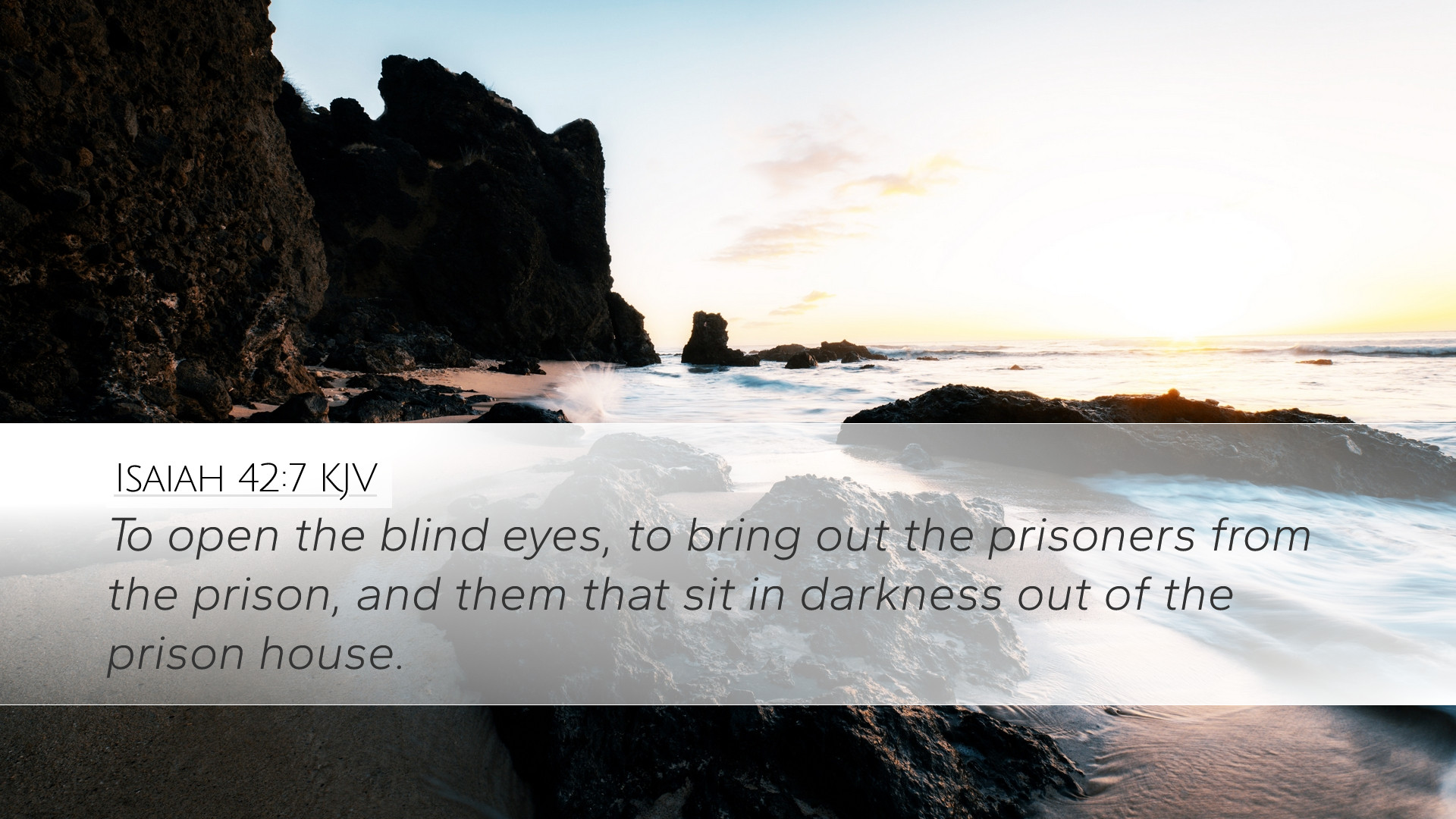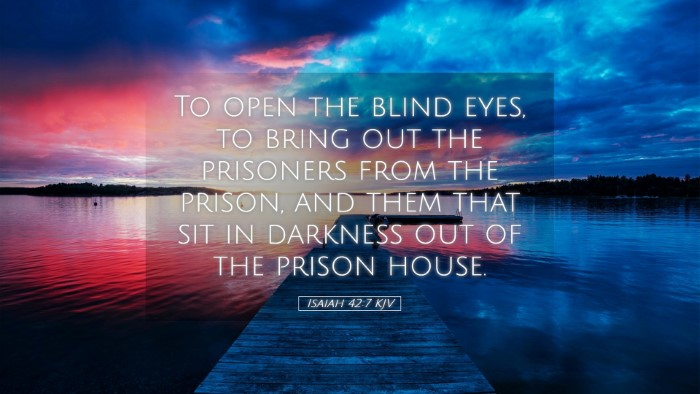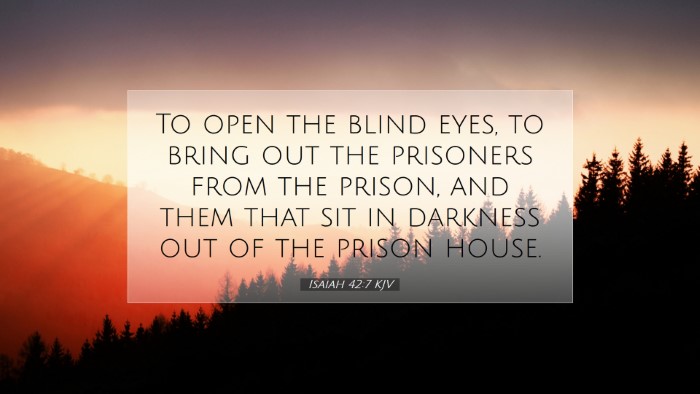Commentary on Isaiah 42:7
Isaiah 42:7: "To open the blind eyes, to bring out the prisoners from the prison, and them that sit in darkness out of the prison house."
This verse is rich in theological significance and provides profound insights into the mission of the Messiah. It encapsulates the themes of liberation, revelation, and redemption, which constitute the core of God’s evangelistic purpose.
1. Contextual Overview
Isaiah 42 is part of the Servant Songs, which introduce and describe the nature and work of the coming servant of the Lord. This servant is often understood as a prophetic foreshadowing of Jesus Christ, who fulfills these divine mandates. The chapter highlights both the compassion and the mission that define this servant’s calling.
2. Opening the Blind Eyes
According to Matthew Henry, the phrase "to open the blind eyes" refers to the spiritual illumination that the Messiah brings. This imagery underscores a dual meaning:
- Physical Healing: The Lord grants sight to the physically blind, demonstrated in various miraculous acts of Jesus.
- Spiritual Enlightenment: The true blindness refers to the spiritual condition of humanity, signifying a lack of understanding regarding God's will and purposes.
Albert Barnes emphasizes that this enlightenment involves "showing the way of righteousness and truth to those who are in moral and spiritual darkness." The opening of blind eyes thus symbolizes an awakening to the truth of God's salvation, which brings profound transformation.
3. Bringing Out the Prisoners
Moreover, the phrase "to bring out the prisoners from the prison" reflects the liberating aspect of this mission. Adam Clarke interprets "prison" as a metaphor for sin and captivity. The verse suggests that the Messiah not only releases those physically imprisoned but also redeems those held captive by their sinfulness.
- Spiritual Redemption: Similar to the freedom offered by the gospel, this liberation involves both the forgiveness of sins and the power to break free from the chains of habitual sin.
- Physical Release: It resonates with God's concern for social justice and the deliverance of the oppressed, which reflects His nature as a liberator throughout the Old Testament.
This dual liberation aligns with the broader biblical narrative of God’s covenant faithfulness and messianic hope.
4. Darkness and the Prison House
The expression "them that sit in darkness out of the prison house" reiterates the dire condition of those apart from God. Matthew Henry describes this darkness as not only literal but also a symbol of ignorance, despair, and alienation from God. Spiritual darkness blinds individuals from recognizing their need for salvation.
In this context, Albert Barnes parallels the prison imagery with the bondage of sin, indicating that the Messiah's mission includes not only physical liberation but also spiritual enlightenment and hope. The act of bringing people out of darkness is indicative of salvation, healing, and restoration to fellowship with God.
5. Theological Implications
The implications of Isaiah 42:7 are profound for contemporary believers. The church is called to emulate the mission of the servant—to be agents of sight, freedom, and hope. Therefore:
- Mission of the Church: Just as Christ opened blind eyes and released the captives, the church must share the message of the Gospel, offering spiritual vision and liberation to those around it.
- Social Responsibility: The church should also advocate for justice and serve as a voice for the marginalized and oppressed, combating the physical and spiritual prisons in society.
- Personal Application: On an individual level, believers are encouraged to reflect on areas in their lives where they may still be blind or imprisoned and seek the liberating power of Christ.
6. Conclusion
Isaiah 42:7 serves as a mission statement for Jesus Christ and, by extension, His followers. It challenges pastors, theologians, and students to delve deeper into their understanding of Christ's redemptive work and its continuing significance in the world today. The promise to open blind eyes and lead prisoners out of darkness is an essential aspect of God's character and mission.
In celebrating the richness of this text, may we, too, embrace the call to bring light to those in darkness and freedom to those held captive, remembering that our empowerment comes directly from the Servant of the Lord.


